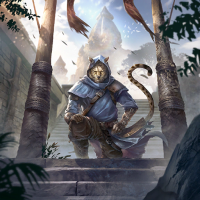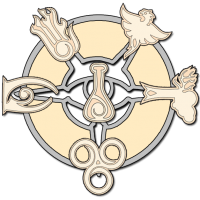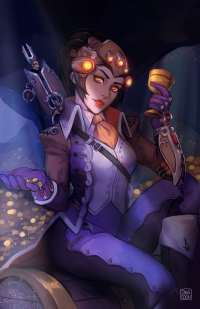April 10, 2014 4:15 AM EDT
There may be people who dislike her personality for a variety of reasons, but for me the crux of the matter is Paarthurnax. It is understandable why she believes he should be killed. He does represent a potential lasting threat and killing off the dragons is the original raison d'etat of the Blades, after all.
However, to modern ways of thinking, killing Paarthurnax because he is a 'potential' threat falls into the same moral category as preventive war. It would have made sense to Louis XIV, but is generally condemned today (see: some of the harshest criticisms of the US invasion of Iraq). We don't (or at least we mostly don't believe we should) kill just because someone might pose a threat... someday... maybe. To us, that is inherently unjust and robs the victim of their right to make their own moral choices. It violates Kant's Categorical Imperative by denying the right of moral choice to the target and therefore treating them as an object instead of an end. Even if you aren't a Kantian, that notion that people have a right to make their own moral choices and should only be punished for bad choices after they make them permeates almost all modern moral teachings or indeed moral assumptions, even the vaguest notions of common sense.
Delphine's attitude flies in the face of all that. It flies in the face of what most of us inherently think of as good and that makes her seem, to modern eyes, dangerously close to evil. I don't know that anyone goes and thinks about this consciously while playing, but I don't think it can help but be there on an unconscious and un-articulated level for most of us. At the very least it makes her seem very unreasonable, unhinged even.
That said... I don't think that's entirely a fair judgement of her, even if it's one I feel and that I think many others feel. In her world, the world of Nirn, I think we see a fair bit of evidence that morality is defined much more by bonds of loyalty - to a lord, a guild, a Divine, a Daedra, etc - than in rationality or individual agency. It's a pre-Enlightenment world. Delphine is a Blade, and having that identity, which undoubtedly forms the bedrock of her sense of self as a person, includes assumptions such as: dragons are bad, dragons are dangerous, dragons WILL attempt to dominate and enslave mankind later if not sooner, it is our duty to kill all dragons, it is RIGHT and honorable to kill dragons. Her sense of being a good person is entirely tied up with being a good Blade.
The problem then, boiled down, is that modern morality, even of the generic and unconsidered kind, is a morality of individuals. We don't see people as primarily part of a category and then as an individual. We may talk about them that way when talking about groups of people we don't know that we hear about in the news or whatnot, but for people we actually know they are individuals first and members of groups second. We are concerned about what is just and fair for the individuals we know (even if we support political goals that are against the groups they belong to) and Paarthurnax is an individual who has atoned for his sins and actively helped the player character to save the world. We see him as someONE who has done these good and helpful things, we do not see him merely as a representative of a group and that groups most common ideals/behaviors. Delphine sees him as part of that group, though... and probably every other person in Skyrim would, too... except the Greybeards (because of their group identity as his pupils).
Before I ramble on even more, I'll just say that I like that Delphine is in the game to tempt and challenge the player. I don't think she's on the right side of the Paarthurnax issue and so I find her dubious and I don't like her as a character, but I'm aware that I think that because I live in 21st century America and not during the vast bulk of human history... or in Tamriel. And that makes her interesting and challenging.







